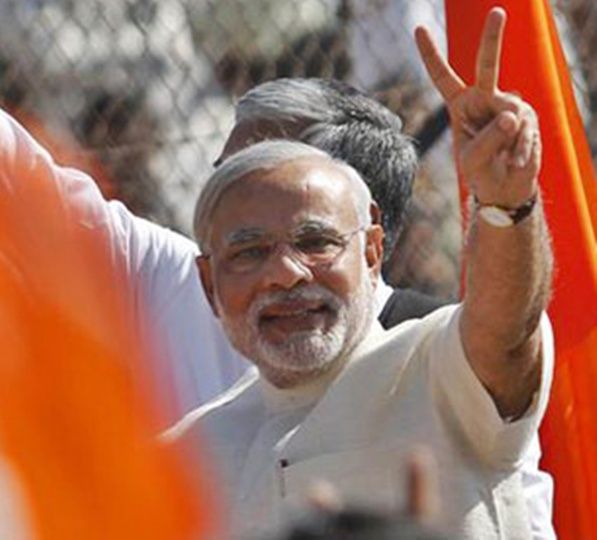 Even as India continues on the priority watch list of the Office of the US Trade Representative, strong voices from Washington, DC, have spoken out in favour of India, reports Aziz Haniffa/Rediff.com.
Even as India continues on the priority watch list of the Office of the US Trade Representative, strong voices from Washington, DC, have spoken out in favour of India, reports Aziz Haniffa/Rediff.com.
The Office of the US Trade Representative, in its annual report of foreign trade barriers last month, retained India on its priority watch list of nations over concerns of intellectual property rights, signalling that this issue will continue to be one that will be an irritant in US-India trade ties.
But policy wonks like Rick Rossow, Wadhwani Chair in US-India Policy Studies at the Center for Strategic and International Studies, and Sumani Dash, Director and Country Head for USA and Canada, Confederation of Indian Industry, based in Washington, DC, in interviews with Rediff.com expressed optimism that this concern will dissipate, and point out that the USTR itself in its report had acknowledged India’s improving environment in IP and other earlier contentious bilateral trade areas.
Rossow, one of the most perceptive and cerebral economic and trade analysts when it comes to US-India trade ties said, “It is not surprising that India, once again, is listed as a priority foreign country. We all recognise that India’s laws and regulations governing IPR could be modernised. Enforcement must also continue to improve.”
He said, “While India’s generic-focused pharmaceutical industry tends to dominate the discussion over India’s IP environment, India is actually home to important IP-creating companies, particularly in the areas of film, television, and software. These groups have a strong offensive interest in seeing a stronger IP framework.”
Dash lamented that it was disappointing that “the USTR has once again placed India in the priority watch list in the 2015 Special 301 Review, given the commendable progress made by the Indian government in addressing specific concerns related to intellectual property rights, especially vis-à-vis the United States.
“The trends in India hence point to greater attention being paid to the overall IPR and Innovation ecosystem which is in the country's own self-interest.”
Meanwhile, Rossow, testifying before the US International Trade Commission on the investigation that the USITC is conducting on the urging of business and industry and some members of the US Congress on trade and investment policies in India 2014-15, said, ‘So far I believe the Narendra Modi government has done an excellent job of quickly opening new sectors to foreign investment, and making other policy changes that will positively impact foreign investors.’
But, he noted, it had ‘a mixed record of ‘fixing’ those policy issues that had been the source of tension to the American business community and also made a few key mis-steps that have been the cause of new concerns to foreign companies.’
Enumerating a few areas where ‘we have seen the Modi government take economic decisions that have served to erode business sentiments,’ Rossow listed these out:
WTO Trade Facilitation Agreement: The single-biggest dark cloud on economic policy hanging over the Modi government’s first year, from the American perspective, is the decision to delay adoption of the WTO Trade Facilitation Agreement last summer. Ultimately India signed on, but only after negotiating a special carve-out for itself.
Model Bilateral Investment Treaty: While the ‘final’ model is yet to be released, the draft issued for public comment in the spring contains changes that will bother investors. These include removing the applicability of ‘most favoured nation’, making it more difficult to launch investor-State dispute settlement proceedings, some open-ended language on credible reasons for expropriation (investors should strive to meet host country development objectives). But also moves closer to the US model in some aspects, in particular through the inclusion of labour and environmental standards. And, of course, this is only the model. Our models were always some distance apart; it will be up to the negotiators to see what is possible.
Minimum Alternative Tax: MAT had not, in practice, been applied to FIIs since it was created in 1997. But an FII that sought a related clarification in 2012 was told they were liable for MAT. Two years later, assessors caught on and began issuing tax notices to FIIs. Finance Minister Arun Jaitley moved pretty quickly to shut the door, but the 68 cases already in process have to continue their course.
Summarising, Rossow re-emphasised that ‘while we cannot claim this has been a perfect year in terms of liberalising the economy, it has been one of the best years on record.’
‘Certainly well ahead of the first year of either the Vajpayee or the Singh governments. Though we can say that the focus has largely been on economic decisions with a prospective effect, with less attention on issues that had previously caused investor concerns,’ he said.
Image: Prime Minister Narendra Modi. Photograph: Reuters.










